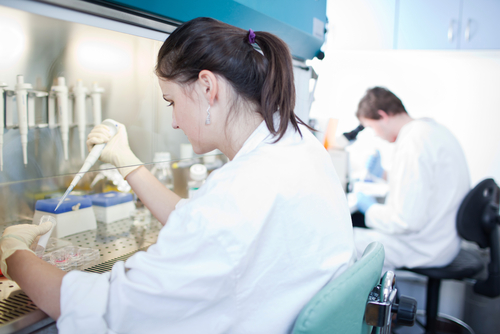Study Identifies New Mutations of Mitochondrial Disorders Associated with CoQ10 Deficiency

A collaborative team of German and Italian researchers from the Institute of Human Genetics (Neuherberg) and the Istituto di Ricovero e Cura a Carettere Scientifico (Milan) identified mutations in the COQ4 gene that are responsible for the early-onset of mitochondrial diseases. The study entitled “COQ4 Mutations Cause a Broad Spectrum of Mitochondrial Disorders Associated with CoQ10 Deficiency” was published February 5, 2015 in The American Journal of Human Genetics.
Adenosine triphosphate (ATP) is the form of chemical energy used by cells for metabolic processes: on the mitochondrial inner membrane, electrons are transferred between the components of the electron transport chain (ETC) until they reach oxygen, converting it to water. This process generates energy that is stored as ATP. Coenzyme Q (CoQ10), or ubiquinone, is one of the components of this chain, synthesized by at least 10 different enzymes.
Mutations in the genes coding for these enzymes are associated with severe infantile mitochondrial syndromes due to tissue CoQ10 deficiency. The stability of CoQ10 biosynthetic enzymes seem to be affected by COQ4. The research team identified mutations in both alleles of the COQ4 gene (biallelic mutations) causing disease in a total of five individuals. Muscle tissue from affected subjects showed reduced amounts of CoQ10 and decreased in CoQ10-dependent electron transfer. The clinical phenotypes were very diverse and severe, as four of the individuals had a prenatal or perinatal onset with early fatal outcome. Two individuals presented reduced muscle strength (hypotenia), slow heart rate (bradycardia), respiratory insufficiency, and heart failure. Two sisters showed completely different symptoms such as epileptic encephalopathy. The only individual with a less severe phenotype showed progressive neurological deterioration.
[adrotate group=”4″]
To further understand the effect of mutated forms, researchers used a yeast model. They found that yeast without COQ4 grows less under an oxidative stress. This phenotype was rescued by insertion of human wild-type COQ4 but not mutated COQ4 human genes into the yeast, showing that mutations affect COQ4 function.
The outcome in four of the individuals did not allow the diagnosis and treatment. “Prompt diagnosis is a main challenge for syndromes of primary CoQ10 deficiency but is very important given that co-factor deficiencies are virtually the only group of mitochondrial disorders for which beneficial pharmacological treatment is currently available. Treatment of the long-surviving subject, S5, has now started and will hopefully provide some useful indication of its efficacy in the near future,” concluded the authors of this study.






